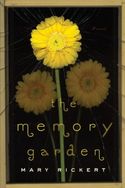
 As a long-time renter, I often fantasized having my own garden; three seasons of bloom, a symphony of blossoms and butterflies. In winter, the snow would rest like lace on the dried stems and flowers. I did not allow the small discouragement, known as reality, to dissuade me from believing in my perfect garden.
As a long-time renter, I often fantasized having my own garden; three seasons of bloom, a symphony of blossoms and butterflies. In winter, the snow would rest like lace on the dried stems and flowers. I did not allow the small discouragement, known as reality, to dissuade me from believing in my perfect garden.
When my husband and I finally bought our little bungalow, I approached the garden with trowel in one hand, seed packets in the other, only to discover beneath the neat landscape, sheets of heavy plastic which, meant to foil weeds, would certainly deter my cottage garden, the one I had dreamt of for so long; foxgloves, hollyhocks, and herbs dropping their seeds to the ground in a perpetual rhythm of death and rebirth.
My vision of sinking my (gloved) hands into the fertile earth was replaced by the sharp reality of scissors and shears, the sweat-inducing labor of removing heavy layers of mulch-covered plastic sheeting anchored to the ground by metal prongs.
It took years to unearth all that plastic. I found an entire fern garden one spring; the fiddleheads in fetal curls unfurled their lovely fronds beneath the sun. The anemic bouquet of Black Eyed Susan next to the mailbox flourished and multiplied once relieved of its encasement.
But that first spring, I focused on the garden that bordered our house from front door to the back. The exposed dirt there was not the verdant soil I had imagined, but dry and dusty. I needed something hearty and resilient, and, given its location, aromatic would also be nice.
I chose a small sprig of mint.
Just as I hoped, the mint flourished, though its enthusiasm, quickly became worrisome, as it sent forth tendrilled roots with an almost freakish fertility in some kind of strange mint-quest to TAKE OVER THE WORLD; or at least my entire garden.
I learned that the only way to prevent the mintpocolypse was through daily pruning. Every time I “picked” the mint (pulling it out by its roots, which did nothing to stop the sneaky suckers) I shook my head at the ruin of my perfect garden.
Then, one spring day, my husband went to the doctor with a complaint about a persistent pain. Two hours later I was blinking beneath the fluorescent lights of a waiting room, while my husband was having emergency surgery.
During Bill’s time in the hospital my garden was attacked by some kind of bug. I came home at the end of each day to spotted leaves and wilted flowers. I pruned, sprayed, cried and uprooted the most damaged plant (recently bought from a roadside stand,) so heavily infested, it was reasonable to think it was the carrier of what I called “the plague.”
That year my garden lost quite a bit of bloom, and is still recovering. The mint, as you may have guessed, continues to flourish. It doesn’t bother me as much as it used to. I have come to appreciate stubborn persistence as I pick mint on my way into the house where my husband sits–eating a sandwich, reading a book, watching Antiques Roadshow– being wonderfully ordinary. It turns out my aspirations have changed; I no longer want a perfect garden. Either that or my definition of perfection has changed. Now, ordinary seems perfect enough.
Mary Rickert is the author of the debut novel THE MEMORY GARDEN (May 6, Sourcebooks Landmark). A Nebula-award nominee for short fiction and a World Fantasy Award winner for her collection Map of Dreams, she received her MFA from Vermont College of Fine Arts. She has worked as a Disneyland balloon vendor, and at Sequoia National Park. She lives in Wisconsin, in a small city of candy shops and gardens.
To comment on Mary Rickert’s blog please click here.


No Comments
Comments are closed.